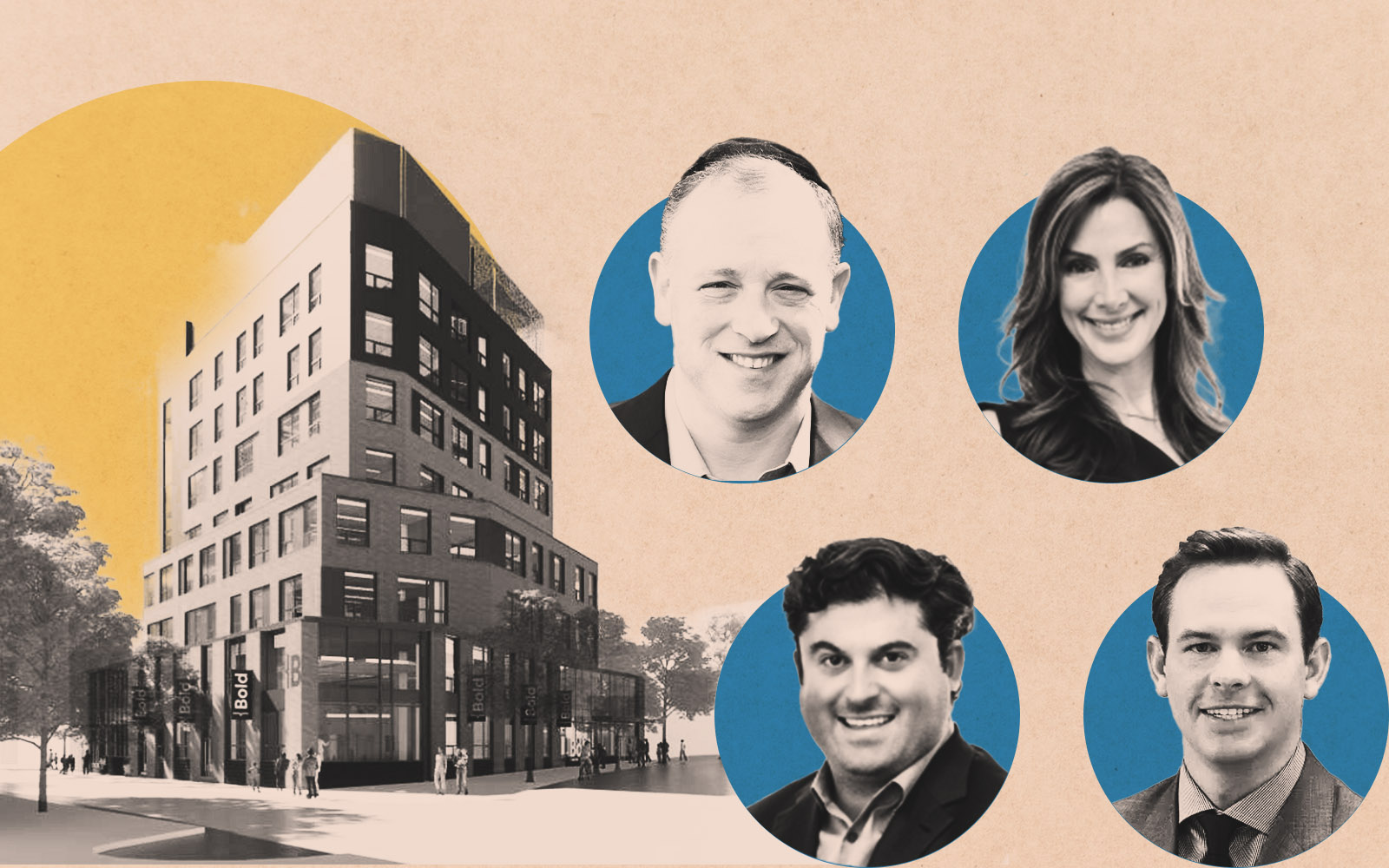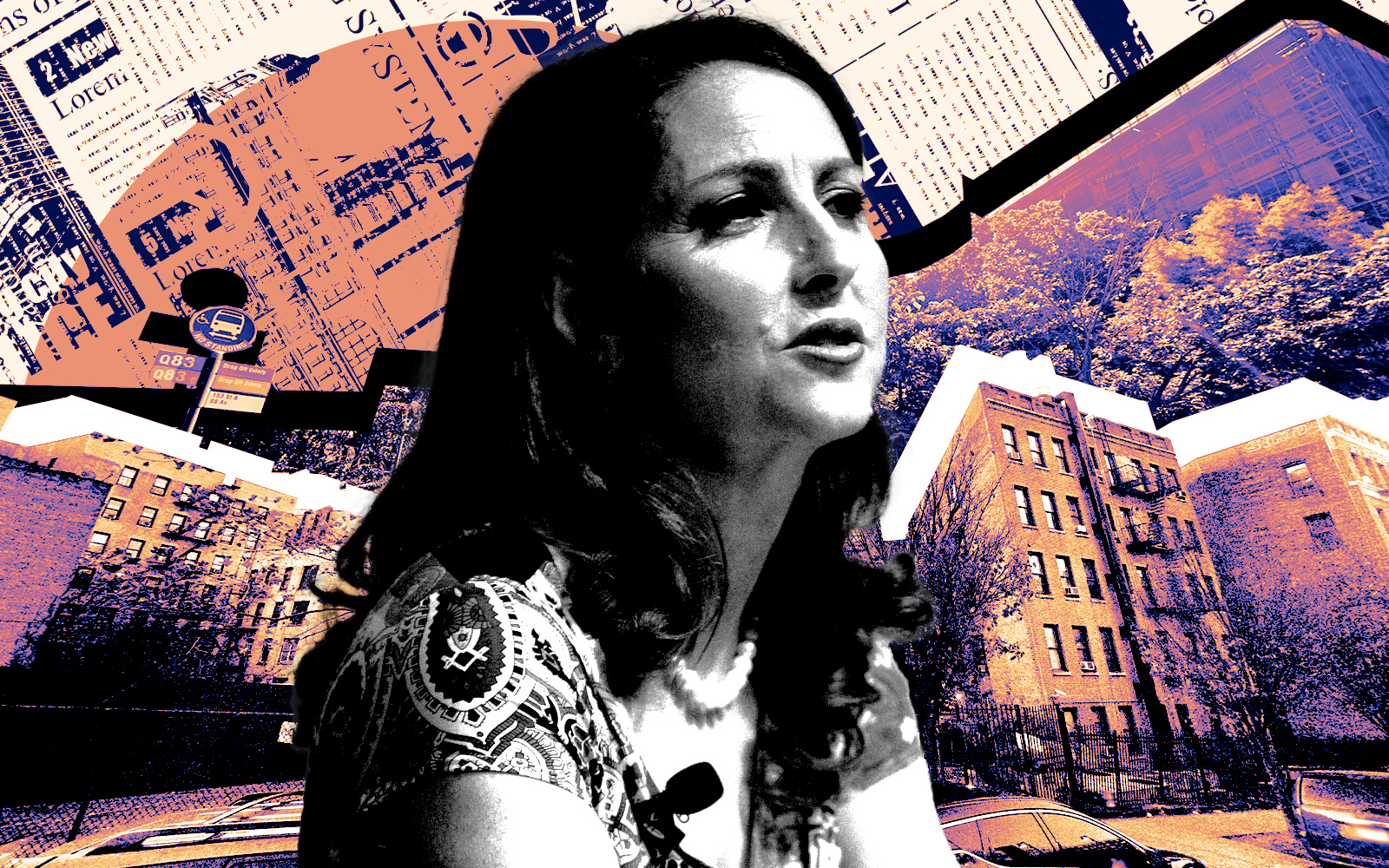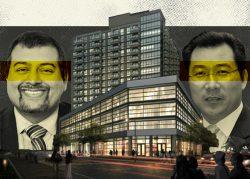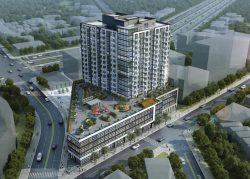When Andrew Esposito heard that Forte Preparatory Academy was looking for space for a high school, he knew just the spot.
The developer called Graham Browne, the founder and executive director of the Queens charter school, and proposed a vacant lot in Elmhurst a few blocks from Forte’s middle school.
While in discussions with the charter school, Esposito approached the owner of the property at 78-06 Queens Boulevard and started negotiations to buy it. The deal came together.
The school inked a 45-year lease in December for a new, 60,000-square-foot building that will include state-of-the art music studios, a chemistry lab and a full-sized gymnasium for Forte’s 560 high school students when it is completed in 2026.
The $48 million project is Esposito’s first ground-up development since he started Apex Development Group in 2018. He is hoping to gain a foothold in charter schools, a small but growing niche in the New York City real estate market that is immune to some of the ills afflicting other asset classes.
“From an economic standpoint, charter schools are desirable, especially in today’s market where ground-up development has been really challenging,” Esposito said. “Charter schools pencil out because it’s a long-term use for the full building. Once we know how to finance and build it, they pay the rent for a 45-year period — and we don’t have to worry about things like vacancy and broker fees.”
Charters are tuition-free schools that are publicly funded and independently run. They are attractive to developers because they sign long-term leases and the rent is subsidized by the city and state.
There is some risk to developers. A charter school must apply to renew its charter at the end of every term, which can be up to five years. The state can deny a school’s renewal request if the school doesn’t reach certain benchmarks. In New York City, 25 charter schools have been closed, according to the New York City Charter School Center, an advocacy group for charters.
Charter schools are mainly located in low-income neighborhoods with underperforming traditional public schools. State law limits the number of charter schools in the city to 275. The city has already reached the cap, but that doesn’t stop current charter schools from expanding. They can add grades and divisions – a middle school can add a high school, as Forte is doing.
“Charter schools are a good tenant to have, especially in this marketplace, where there are obviously concerns about the office market, et cetera,” said David Umansky of Civic Builders, a nonprofit developer of charter schools. “Property owners in the areas where charter schools cluster have gotten wise to the fact that these are good tenants and they look for that tenancy.”
The demand for seats at city charter schools far outweighs the supply. More than 44,000 students are on waiting lists, according to the Charter School Center. Amid growing outcry from charter school advocates, Gov. Kathy Hochul struck a deal last year with the state legislature to allow the charters of 14 schools that have closed, known as “zombie licenses,” to be reissued.
The real estate play for charter schools involves existing space more often than ground-up development, and often in non-traditional settings. Charters are popping up in empty school buildings, grocery stores, abandoned factories and even former shopping malls. Developers work with school administrators to customize classrooms, program spaces and facilities.
Scott Barone of Barone Management, the city’s largest private charter school landlord, is building a commercial kitchen for a Queens school that will train students in food services. At another school, he built music performance spaces and practice rooms.
“They all have different missions and criteria,” Barone said. “It all goes back to the leadership team.”
Barone signed his first charter school lease six years ago at a former Catholic school building in downtown Jamaica. He now has five schools, plus seven more in various stages of construction.
One issue with leasing to new charter schools is that their space needs tend to start small and grow annually. Often they begin with one grade and add one annually, leaving square footage in a property unused for several years.
“From an economic standpoint, a charter school doesn’t open with 500 students. You start with a kindergarten and add another kindergarten class each year,” Barone said. “It takes three to five years to get full stabilization, but I have yet to sell any school properties.”
Esposito signed a contract to buy the Queens property in December, the same month he inked the lease with Forte Prep. He is shopping for a construction loan to pay for the project and putting together documents for a building permit. He hopes to finance about 65 percent of the cost, he said.
He declined to disclose the cost of the land or what Forte will pay in rent, citing confidentiality clauses.
But he is confident the charter school deal will pencil out.
“Especially today, it’s one of the few asset classes that is a viable development project,” Esposito said. “They’re market-rate transactions paying market-rate rents for turn-key buildings.”
Read more




